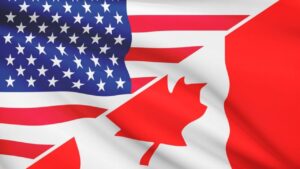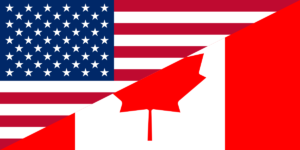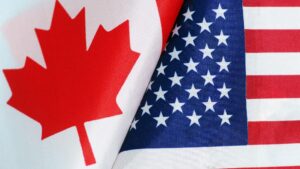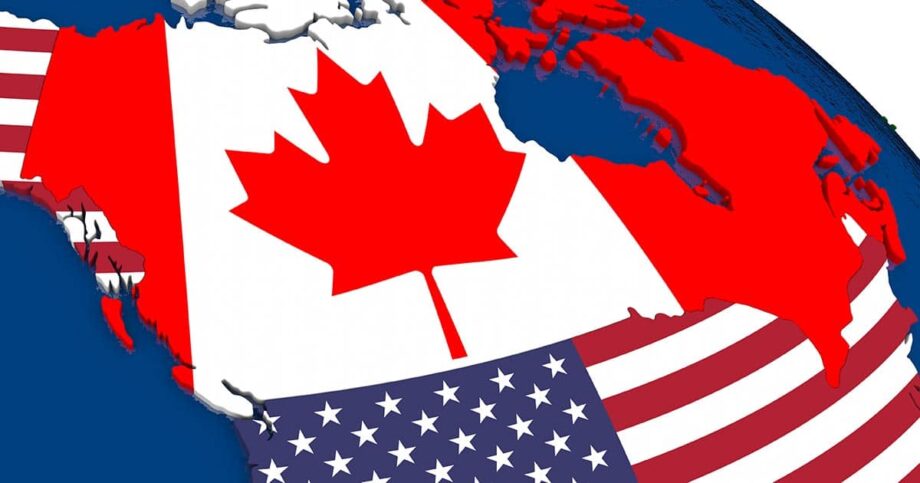EB-2 Immigration to the US from Canada

EB-2 Immigration to the US from Canada
The Employment-Based Immigration: Second Preference (EB-2) visa is a category within the U.S. immigration system aimed at highly skilled foreign workers who possess advanced degrees, exceptional abilities, or, under certain conditions, are willing to work in national interest sectors. This overview provides an in-depth look at the requirements, eligibility, types of applications, benefits, and processes involved in the EB-2 visa category.
1. Overview of the EB-2 Visa: EB-2 Immigration to the US from Canada
The EB-2 visa is one of five employment-based visa categories (EB-1 to EB-5) for workers seeking to reside in the U.S. Based on the U.S. Citizenship and Immigration Services (USCIS) guidelines, the EB-2 category is reserved for professionals with advanced degrees or foreign nationals with exceptional abilities in the sciences, arts, or business. The EB-2 category also includes a special subcategory called the National Interest Waiver (NIW), which allows individuals to bypass certain requirements if they can prove that their work benefits the United States.
The U.S. Department of Labor (DOL) and USCIS jointly manage the EB-2 visa application process. Although rigorous, the visa often leads to a U.S. green card, providing opportunities for long-term employment and residence.
2. Eligibility Criteria for the EB-2 Visa: EB-2 Immigration to the US from Canada
To qualify for the EB-2 visa, applicants must meet specific educational or professional criteria and generally require an employer to sponsor their application. There are three primary eligibility paths:
A. Advanced Degree Holders: EB-2 Immigration to the US from Canada
- Advanced Degree Requirement: Applicants must hold at least a U.S. master’s degree or a foreign equivalent. Alternatively, individuals with a bachelor’s degree and five years of progressive work experience in their field can also qualify.
- Proof of Education: Degree credentials, diplomas, and transcripts are required to establish eligibility.
- Progressive Work Experience: If using work experience instead of an advanced degree, applicants need to provide proof that their job responsibilities increased in complexity over time.
B. Exceptional Ability: EB-2 Immigration to the US from Canada
Applicants who do not possess an advanced degree but can demonstrate exceptional ability in the sciences, arts, or business may also qualify for the EB-2 visa. "Exceptional ability" implies a higher level of expertise significantly above the average in a specific field.
- Evidence of Expertise: USCIS requires at least three pieces of evidence from a list of possible options, including:
- Official academic records showing training in their field
- Letters from employers attesting to at least ten years of full-time experience
- Membership in professional associations
- Awards or recognition for achievements in the field
- Objective Demonstration: Proof of national or international acclaim may strengthen the application, but specific evidence is needed to satisfy USCIS standards.
C. National Interest Waiver (NIW): EB-2 Immigration to the US from Canada
- What is an NIW?: The NIW is a waiver that allows foreign nationals to seek EB-2 status without an employer sponsor if they can show that their work will benefit the United States.
- Meeting the NIW Criteria: Applicants must meet the three-pronged test established by USCIS:
- The applicant's work is of substantial intrinsic merit.
- The applicant’s contributions are of national scope or importance.
- The applicant is well-positioned to advance their proposed work independently, without needing sponsorship.

3. The EB-2 Visa Process: EB-2 Immigration to the US from Canada
The EB-2 visa application process can be divided into several stages, each requiring detailed documentation and compliance with U.S. immigration policies:
A. PERM Labor Certification
Except for those applying under the NIW, EB-2 applicants must secure a Program Electronic Review Management (PERM) Labor Certification. This ensures that no qualified U.S. workers are available for the position the foreign applicant seeks.
- Employer's Role: The sponsoring employer must demonstrate recruitment efforts and ensure that hiring a foreign worker will not negatively impact U.S. wage levels.
- DOL Approval: PERM applications are submitted to the Department of Labor, and approval typically takes several months. Employers must maintain records of their recruitment process to demonstrate due diligence in hiring.
B. Form I-140 Petition: EB-2 Immigration to the US from Canada
The I-140 petition, submitted by the employer (or by the applicant in NIW cases), requests that USCIS recognize the applicant as eligible for the EB-2 visa.
- Supporting Documents: Proof of the applicant’s qualifications, job offers, educational credentials, and other supporting documents must accompany the form.
- Premium Processing Option: In some cases, I-140 applications are eligible for premium processing, which reduces processing time from several months to approximately 15 days for an additional fee.
C. Adjustment of Status or Consular Processing
On another visa, they can file Form I-485 to adjust their status to permanent residency.
- Consular Processing: Applicants outside the U.S. must apply at a U.S. consulate in their home country. The consulate will schedule an interview, and if successful, the applicant will receive a visa for entry to the U.S. as a permanent resident.
4. Timeline for EB-2 Visa Processing: EB-2 Immigration to the US from Canada
The EB-2 visa process can take anywhere from 1 to 3 years, depending on the applicant’s home country, USCIS processing times, and visa availability. The Department of State’s monthly Visa Bulletin details priority dates and visa availability, influencing the final timeline.
- Priority Dates: Each I-140 petition is assigned a priority date, determining the applicant’s place in the visa queue.
- Country Limitations: Applicants from high-demand countries, including India and China, may face longer waits due to per-country visa limitations.
5. Benefits and Challenges of the EB-2 Visa: EB-2 Immigration to the US from Canada
A. Benefits of the EB-2 Visa: EB-2 Immigration to the US from Canada
- Pathway to Permanent Residency: The EB-2 visa provides a pathway to a green card and, subsequently, U.S. citizenship.
- Work Flexibility: EB-2 visa holders can work across a variety of fields once their green card is approved.
- Family Sponsorship: The EB-2 visa allows applicants to bring immediate family members (spouse and unmarried children under 21) to the U.S., who can obtain work and study authorizations.
- Professional Growth: The EB-2 visa caters to highly skilled individuals, enhancing professional mobility and access to U.S. opportunities.
B. Challenges of the EB-2 Visa: EB-2 Immigration to the US from Canada
- Lengthy Process: The EB-2 application process can be time-consuming, especially for applicants from countries with high demand.
- Complex Documentation Requirements: Demonstrating exceptional ability or national interest can be challenging and often requires substantial documentation.
- Costs: The EB-2 visa involves various application fees, including costs for PERM certification, I-140 petition, and adjustment of status.
6. Comparisons with Other Employment-Based Visas
- EB-1 (First Preference): This category is intended for individuals with extraordinary abilities, and it has even higher qualification standards but often shorter waiting times.
- EB-3 (Third Preference): EB-3 visas are designated for skilled workers, professionals, and other workers. The qualifications are less stringent than for the EB-2, but processing times can be longer.
- H-1B Non-Immigrant Visa: Unlike the EB-2, the H-1B is a temporary work visa. Although it allows for dual intent (eventual green card application), it does not provide immediate residency status.

7. Tips for a Successful EB-2 Application: EB-2 Immigration to the US from Canada
- Organize Supporting Documents: Collect all necessary documentation, including educational records, experience letters, professional recognitions, and publications.
- Work with Experienced Legal Counsel: Given the complexity of the EB-2 visa, working with immigration attorneys can help avoid errors and streamline the process.
- Prepare for Consular Interviews: For those going through consular processing, it is essential to be prepared for the interview and bring all requested documents.
- Stay Informed of Visa Bulletins: Keeping an eye on monthly Visa Bulletins ensures applicants know where they stand in the visa queue.
8. Conclusion
The EB-2 visa represents a substantial opportunity for skilled professionals and individuals with exceptional abilities to live and work permanently in the U.S. While the process may be complex and time-consuming, the EB-2 category's advantages make it one of the most sought-after paths to U.S. permanent residency. Through rigorous documentation, strategic planning, and adherence to USCIS standards, applicants can successfully navigate the EB-2 visa process, setting the stage for a promising future in the United States.
In case, if you need help with EB-2 Immigration to the US from Canada, please fill in application below or contact us directly.

